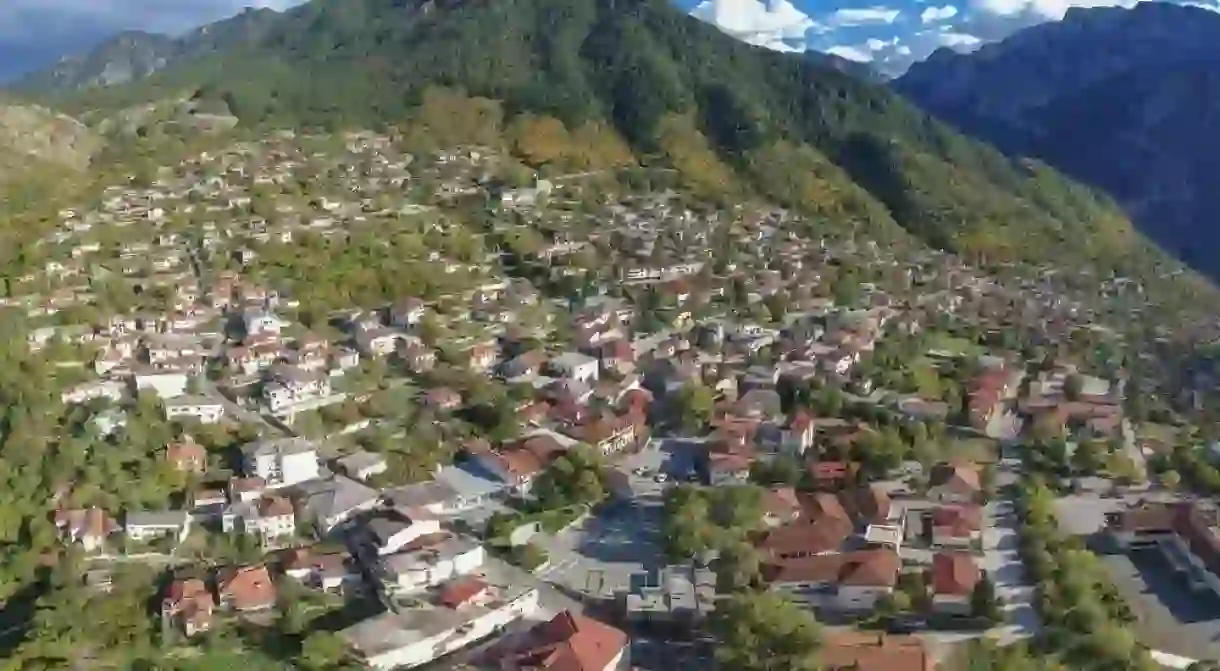Why Visiting the Mountainous Region of Zagori, Greece is a Must

Tucked in the northwestern corner of Greece, in the region of Epirus, Zagori (or Zagoria) is a mountainous region of stunning beauty in the Pindus mountain range. Covering about 1,000 square kilometers, it contains 46 villages which are known as the Zagori villages (or Zagorochoria or Zagorohoria). With an average of four inhabitants per square kilometer, it boasts two national parks, including the Vikos Gorge. Here is why you should visit.
To discover its traditional villages
The region of Zagori has 46 traditional villages nestled on verdant mountain slopes. All connected by stone-arched bridges, these villages are ideal for those seeking relaxation and tranquility. Since the region hasn’t been spoiled by mass tourism, there are not a lot of hotel complexes. Instead, visitors get to stay in old houses restored into guesthouses and bed and breakfasts. We cannot find anything more romantic even if we tried.

It is a perfect paradise for hikers
As the region remained cut off from the rest of the country for decades, it boasts an extensive network of old footpaths in good condition. You can opt to explore the region and a few of its villages following these tracks but if you are a serious hiker, you can tackle the nearby massifs. Many hiking centers have set up day hikes and multiple-day excursions, where you will come across picturesque villages, hidden peaks and scenic landscapes.

It has a wealth of outdoor activities
Although Zagori is quite popular among Greeks in the fall and winter, it is a great year-round destination for those seeking an adrenaline rush. Indeed, Zagori has successfully developed a whole range of alternative activities over the last decade. If you enjoy outdoor fun like rafting, horse riding, mountain biking or rock climbing, then this is the dream place for you. Besides this, those adept at skiing and snowboarding will surely enjoy some snow fun at the nearby ski center of Vasilitsa, located in Grevena, an hour’s drive away.

It is a paradise of unspoiled nature
Zagori is home to the impressive Vikos Gorge, the second deepest gorge in the world after the Grand Canyon. Rising up to 1,040 meters in several places, the steep walls of the gorge offers a fascinating sight to its visitors. Furthermore, the gorge is crossed by the Voidomatis River, ideal for rafting rides. And for nature lovers, the Vikos-Aoos National Park, founded in 1973, extends for 126 square kilometers and includes the gorge, mount Tymfi and the Aoos river. There, rare species of fauna and flora flourish, including rare and endangered species of birds, foxes, deer and even bears, so hikers should be cautious when exploring the region.

The region has a unique architecture
The Zagori villages are known for their typical architecture, with stone houses, cobbled alleys and slate roofs. But each village has its own characteristics, with some decorated with exquisite wood carvings on the ceiling or 19th-century paintings adorning some of the houses. One thing is for sure, you won’t have time to put down your camera.

It has a fascinating culture
Successful in preserving the Greek heritage during centuries of occupation due to their isolated location, the villages of Zagori are home to beautiful churches built in the style of a basilica, with stunning frescos and intricate altar screens. Furthermore, their isolation played a determined role in maintaining old traditions and customs, dances and songs, which have disappeared elsewhere in the country.













